19 January 2021 | Energy, How Does it Work?, Video |
 Given the state of the world, you could be forgiven for planning ahead with things like back-up power and a method of preserving food.
Given the state of the world, you could be forgiven for planning ahead with things like back-up power and a method of preserving food.
Deep freezers – or chest freezers – are great for storing large amounts of food for a long time.
But how much juice do they really use?
If you’re running on the back-up power of a generator, for example, will the deep freezer suck too much electricity?
It turns out the answer will surprise you!
(more…)
11 August 2020 | Energy, Gizmos, How Does it Work?, Video |
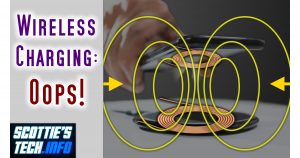 Wireless charging is all the rage these days.
Wireless charging is all the rage these days.
Unfortunately, it’s not quite up to par.
It turns out that most chargers are actually wasting tons of electricity – and they’re not exactly easy to use, either.
Join for me for a look at yet another wireless technology that leaves a lot to be desired…
(more…)
30 June 2020 | Energy, How Does it Work?, Video |
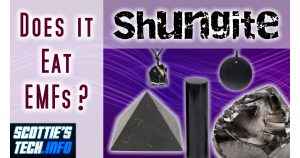 Shungite is a stone that many people use to protect themselves from EMFs such as WiFi, 5G, and so on. But does it really work?
Shungite is a stone that many people use to protect themselves from EMFs such as WiFi, 5G, and so on. But does it really work?
Well, it turns out that most of the information available on the internet appears to be dead wrong!
I do a few simple tests in this video to show that no, shungite does not appear to absorb EMFs – it reflects or partially blocks them only when it’s directly between the antenna and your body.
Well, okay, but there are still tons of people who swear by it! What’s going on here?
Should you keep using your shungite?
(more…)
11 February 2020 | Energy, How Does it Work?, Video |
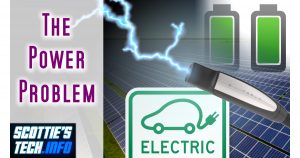 These days, it’s all about Going Green. And what could be more green than an electric car?
These days, it’s all about Going Green. And what could be more green than an electric car?
Zero emissions, baby! Well, sort of…
While the acceleration may be awesome, the range leaves something to be desired. And range is directly related to power – specifically, the available power from a battery pack.
What’s more, the power to charge the battery has to come from somewhere, and that “somewhere” is the electric grid. So what happens if all of a sudden, everyone gets an electric car?
Well, in many places, it wouldn’t be pretty. Some regions would need to DOUBLE their current grid capacity. And all that extra juice has to come from somewhere… and it ain’t coming from solar or wind power!
(more…)
1 October 2019 | Energy, Gizmos, How Does it Work?, Video |
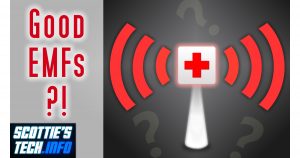 You all know I’m not a big fan of wireless due to the health risks.
You all know I’m not a big fan of wireless due to the health risks.
I’ve also said before that resources should be devoted to making these wireless technologies safe – so that we don’t have to just ditch it all!
But then, the question is: Is EMF ever safe?
Better yet, are there examples of EMF / radio frequency energy being used to possibly even HEAL people?
It turns out, there are! And it’s all pretty interesting…
(more…)
8 May 2018 | Energy, How Does it Work?, Video |
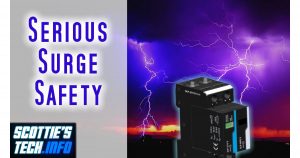 Most of us have “surge protector” power strips. They are supposed to protect against power line surges due to lightning and certain power line faults.
Most of us have “surge protector” power strips. They are supposed to protect against power line surges due to lightning and certain power line faults.
But do they?
Well, yes… To a small degree.
But if you want some serious protection, you need a whole-house surge protector.
From a brief intro to lightning, to how surge protectors work and how to install them safely, this episode has everything you really need to know…
(more…)
10 April 2018 | EEK!, Energy, How Does it Work?, Video |
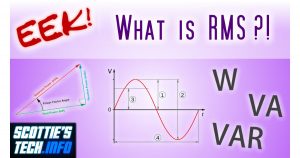 You probably do this all the time, but you don’t even know it.
You probably do this all the time, but you don’t even know it.
I’m talking about AC power calculations with P = V x I.
Technically, it works. But when you think about it, it shouldn’t. AC has constantly changing voltage and current over time – unlike DC.
So how on earth does it work?
Well, the short version is: RMS, or root mean square!
(more…)
27 February 2018 | Energy, How Does it Work?, Video |
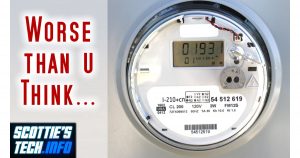 I recently learned the hard way what’s happening with smart meters in Europe. The same type of smart meter they’re using here in France has already been deployed in many EU countries.
I recently learned the hard way what’s happening with smart meters in Europe. The same type of smart meter they’re using here in France has already been deployed in many EU countries.
Mostly, we hear only about the negative health effects of wireless smart meters, but the ones here only send data back over the power lines.
Nevertheless, it turns out smart meters here are still being used to pretty much screw many over.
In short, smart meters may mean less juice to power stuff, and more frequent main breaker trips as people exceed their (now reduced) capacity.
(more…)
7 November 2017 | Do-It-Yourself, Energy, Video |
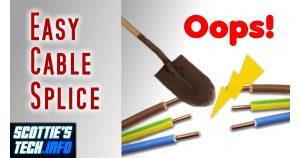 If you’ve ever accidentally chopped through a wire or electrical cable, you know how much fun it can be to try to repair it so that it stays waterproof, dust proof, weatherproof, etc.
If you’ve ever accidentally chopped through a wire or electrical cable, you know how much fun it can be to try to repair it so that it stays waterproof, dust proof, weatherproof, etc.
I recently had just such a fun experience myself. It turns out that there are quite a few nice products out there to make the splicing process WAAAAY easier.
Keep in mind that the type of splice you use depends greatly on the application – and even the type of wire (solid vs stranded).
A wire splice for an automotive-type application must be pretty strong, because vibration is obviously an issue.
An underground electrical cable doesn’t have to withstand vibration, but it definitely needs to be waterproof!
(more…)
5 September 2017 | Energy, How Does it Work?, Video |
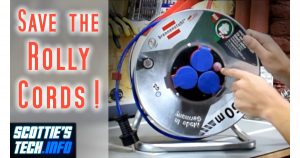 Extension cord reels, or rolly cords as I like to call them, are seriously handy.
Extension cord reels, or rolly cords as I like to call them, are seriously handy.
Nobody likes spending 30 minutes untangling a 50m extension cord.
Trouble is, usually we use them incorrectly!
It turns out you have to read the fine print: You can only use the full capacity of the reel if you fully unwind the rolly cord.
Oops!
(more…)
 Given the state of the world, you could be forgiven for planning ahead with things like back-up power and a method of preserving food.
Given the state of the world, you could be forgiven for planning ahead with things like back-up power and a method of preserving food.









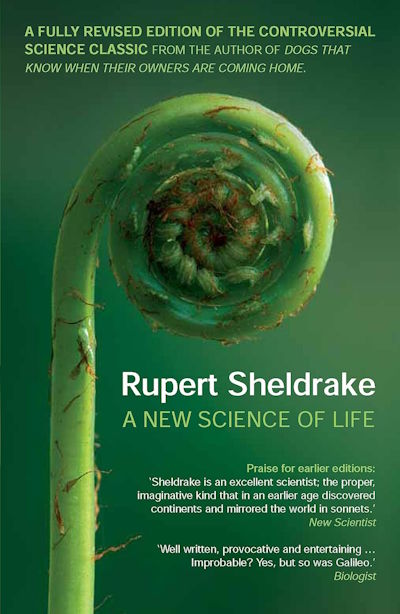
Recent Comments